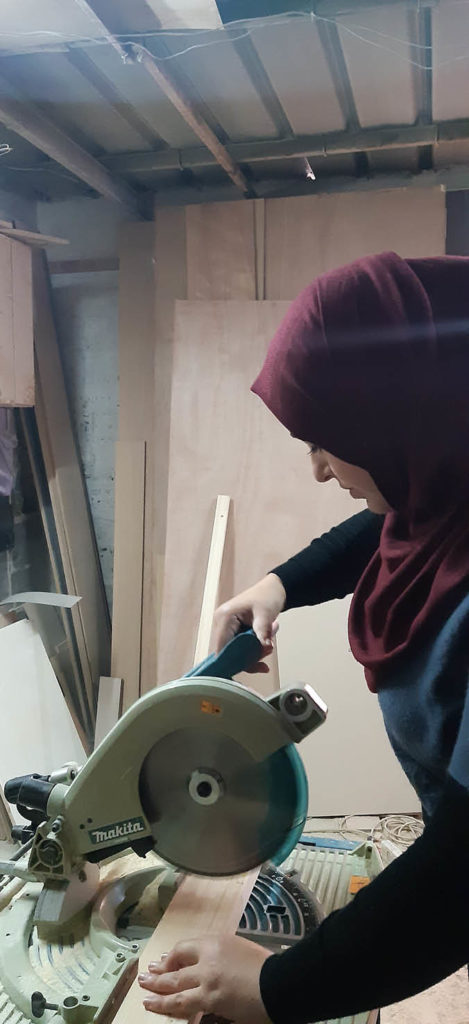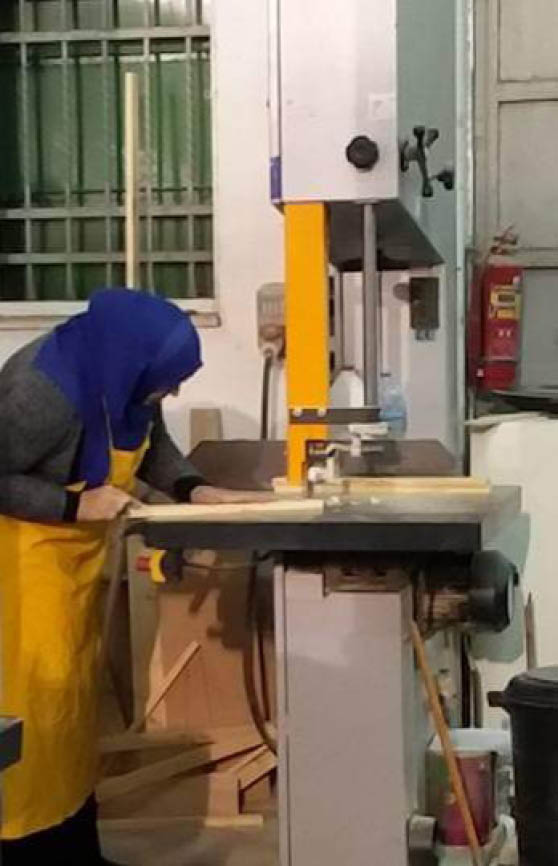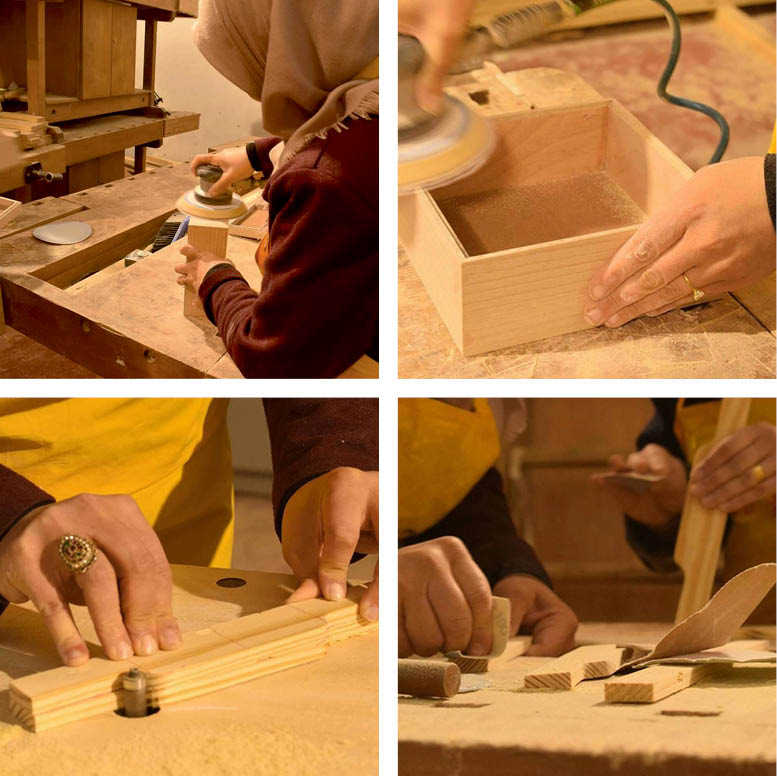My name is Hanan Ismael. I am a young woman from Ein Arik Refugee Camp, near Ramallah. I’m the mother of two daughters. Today I can proudly say that I am a founder and one of three owners of a carpentry business.
Our start was gloomy. We were three young women from a refugee camp, struggling in life, having been abused and neglected, feeling helpless, with nobody to rescue us.
About two years ago, I graduated from a vocational training course for young women interested in carpentry. It provided me with basic technical skills, strengthened my love for woodwork, and inspired me to dream of opening my own carpentry shop. I felt brave and saw my future in brilliant rainbow colors.
When a few of my classmates and I decided to enter a business-plan competition, and, surprisingly, won the first prize of US$ 13,000, we intended to use the money to start our business. But when the potential partners learned that the prize was in fact a loan from a microfinance institution with the stipulations that we find a guarantor and spend all the money on equipment, they withdrew, and I stood alone. Believing in my dream and adamant about pursuing it, I convinced my two closest friends from the refugee camp to join my project. They knew nothing about woodwork or the carpentry business, but they trusted me and were infected by my passion.
Finding a guarantor caused much anguish, and we already feared we would not be able to claim the prize. How happy we were, however, when the father of one of my business partners agreed to be our guarantor! But then, all the loan money had to go to the supplier of a carpentry machine, and we were given not a cent in cash. We now had a carpentry machine but no place to put it; neither did we have money to rent a venue or buy raw materials.
At this point, my relatives began to understand that I would not give up and gave me a helping hand. They allowed us to use an old building that belongs to my extended family: one room, a small corridor, and a kitchenette.

In August 2018, we finally celebrated the launch of our own business. We were flying! Overjoyed, we naively believed that we had surmounted all obstacles. Yet, even though my vocational training had been great, we had not been given the opportunity to practice all the necessary skills. So, I was not much better than my friends and partners in carpentering. Even buying raw materials was a problem. Men simply laughed at us when we introduced ourselves as carpenters. Nobody took us seriously, and all the men – wood suppliers included – gave us the same advice: quit and forget about this purely male occupation. And of course, we could not even dare to ask for a credit line, commonly given to small producers by local suppliers. When we finally found one small shop willing to work with us, all payments had to be in cash!

But we persevered and eventually began production. Each piece took plenty of time, and we made many mistakes – literally in every piece and with every operation. But nevertheless, we were happy. We were producing! We hit a snag after my friend’s father, our guarantor, the only person who had believed in our business, died from cancer. We stopped work for two months to stand by our friend in her grief. When we came back to our small carpentry project, we hardly had the courage and energy to continue. But our large loan had to be repaid, no matter our circumstances.
In February 2019, I saw an ad about B-Hub and the Obader project, implemented by B-Hub.i We applied and were selected. Honestly, we applied in the hope of receiving a grant to cover part of our debt, as we were hardly able to repay it. We didn’t understand how else B-Hub could help us.
Now, I am able to say that working with the B-Hub team has turned around our business and our lives. In a first meeting, B-Hub’s team analyzed our situation and business and suggested ways to remedy the problems that they diagnosed. We put in days and months of hard work to reanimate our carpentry shop. A technical expert in wood processing introduced us to professional secrets in dealing with wood materials and connected us with suppliers of high-quality wood. Thank you, Abu Dawood, if you can read these words!

We conducted market research and visited tens of stores and other carpentry shops. Together with the B-Hub team, we found a niche in the market, giving us a big advantage: children’s furniture. We decided to specialize in this line of furniture and to comply with the most demanding EU quality standards. B-Hub engaged university students in chemistry to analyze finishing and painting materials and recommend the ones that are suitable for children. Students from the engineering faculty helped us design attractive-looking pieces that are multi-functional, durable, and affordable for young families with moderate incomes. Together with a financial expert, we developed a simple financial system to monitor our costs and profits and learned how to use accounting in business management.
B-Hub also covered the cost of building a prototype for children’s furniture.ii It is nearly ready, and very soon, we will be able to offer our clients a multifunctional set suitable for sleeping, playing, storage, and even the study needs of children from age 0 to 15 years – absolutely safe furniture that does not expose them to dangerous chemicals.
Since we started working with B-Hub, our monthly profit has increased by 900 percent (from NIS 200 to about NIS 2,500 monthly), and we expect a drastic boom next year, as we will expand beyond the Ramallah area.
We chose the name “Maryama” in honor of a character, an Arab woman, in Granada, a novel by Radwa Ashour. Maryama was authentic and had a strong character, creating beauty around her. We, Hanan, Aziza, and Baraah, aspire to be like Maryama.

